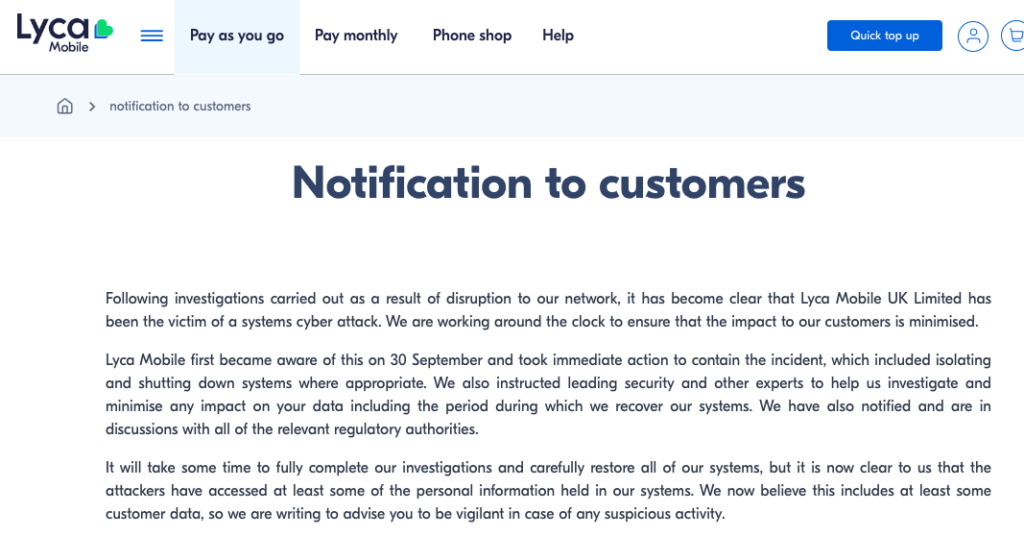
10-9 #BeGrateful : Samsung is reportedly developing a slim foldable laptop with a unique waterdrop hinge; Samsung ring to be delayed till 3Q24 or 1Q25; VinFast Auto is planning to set up assembly units in India and Indonesia; etc.

According to IDC VP Francisco Jeronimo, Google Pixel has shipped 37.9M phones in 2016-2023 – the entire lifecycle of the Pixel lineup thus far. Jeronimo notes that sales are growing in “double digits” in recent years. While that is not exactly a massive number – Apple, for instance, is estimated to ship over 224M iPhones per year – it is steadily moving up. In 2018, Jeronimo pointed out that Google had doubled its shipments of Pixels in just the line’s first year, totaling just shy of 4M units. By 2019, Google had picked things up, moving 7.2M units during that year alone. (9to5Google, CN Beta, Twitter)
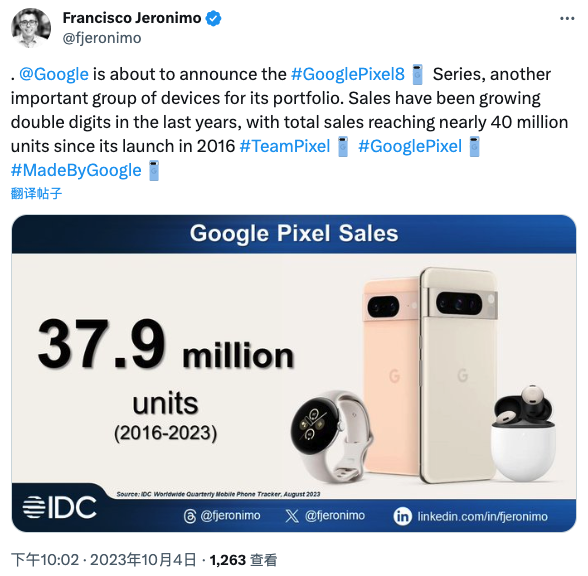
According to Shin-Chul Baik, the Principal Engineer and Technical Program Manager of the Security Team for Samsung’s Mobile eXperience division, Samsung has been actively discussing what the company should be doing with regards to long term security updates beyond the 5 years of support that it currently provides. More than 1B Samsung devices are updated every month and over 10B annually. Over 150+ devices receive security updates on its monthly, quarterly, and bi-annual release schedules in markets across the world. Baik mentioned that Samsung has invested an incredible amount of resources in making this happen.(Gizmo China, SamMobile)

In 1Q23, China experienced a nearly 15% decline in semiconductor production and a 13.8% drop in smartphone production, primarily affecting local brands like OPPO, vivo, and Xiaomi. This decline in electronics production contrasted with a 4.5% GDP growth and 3.9% industrial output increase in Mar 2023. The US export control regime on semiconductor equipment and increased competition from factories in Vietnam and India are contributing factors to China’s challenges. Now according to recently released data by the Ministry of Industry and Information Technology (MIIT) indicates a notable recovery in the electronic manufacturing sector in China from Jan to Aug 2023. Despite a slight decline of 0.9%, mobile phone production reached 935M units, with smartphones contributing 679M units but experiencing a 7.5% decline. (Gizmo China, CNMO, MIIT)
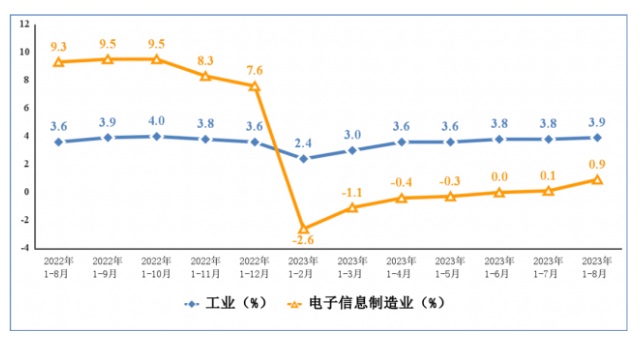
Xiaomi’s Communications Director Daniel Desjarlais has revealed that Xiaomi 13T and Xiaomi 13T Pro will receive 4 versions of Android software updates and 5 years of security patches. Android OEMs have been steadily increasing the duration of software support, thanks to Samsung, OPPO, OnePlus, vivo, etc. (Gizmo China, Twitter)
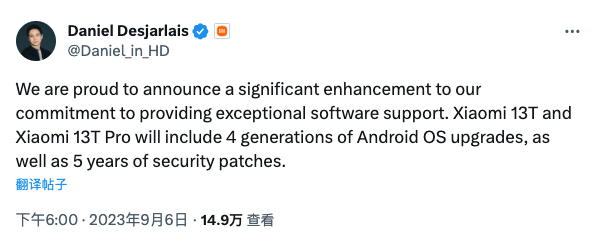

The Samsung Galaxy Ring, rumored to go official in Jan 2024 with the Galaxy S24 lineup, is now expected to be unveiled in 3Q24 or 1Q25. The design of the ring is not finalized. In its current stage, the ring supports multiple features but is too large for commercialization. Samsung is expected to reduce the size of the ring while implementing as many functions as possible. Samsung is working on one Galaxy Ring model, which will come in 4 sizes. Samsung has collaborated with multiple companies for the development, including Doosung Tech and Korea Seongjeon. Samsung allegedly plans to unveil the ring in 3Q24 alongside Galaxy Z Fold6 and Z Flip6. However, that would be possible only if Samsung does not apply for medical device certification for the Galaxy Ring, which could take months. If it does, the launch could be delayed to 1Q25. Samsung is also considering a Galaxy Ring that can work with extended reality (XR) and mixed reality (MR) devices. (GSM Arena, The Elec)
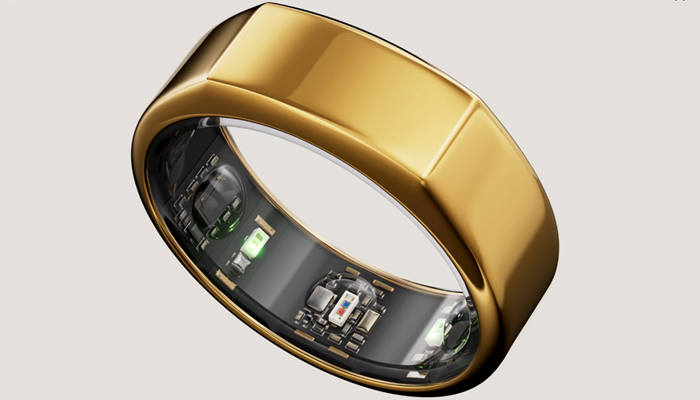

Xiaomi’s first car will allegedly be launched in both battery electric and extended-range versions, with the battery electric version available in high-end and entry-level configurations. The entry-level model adopts a 400V voltage platform and plans to use BYD Blade Battery. The high-end model adopts an 800V voltage platform and uses CATL Qilin Battery with a battery pack capacity of 101kWh. The extended-range version is expected to be equipped with a 1.5L or 1.5T range extender, and paired with a large-capacity battery. (Gizmo China, Pandaily, My Drivers)
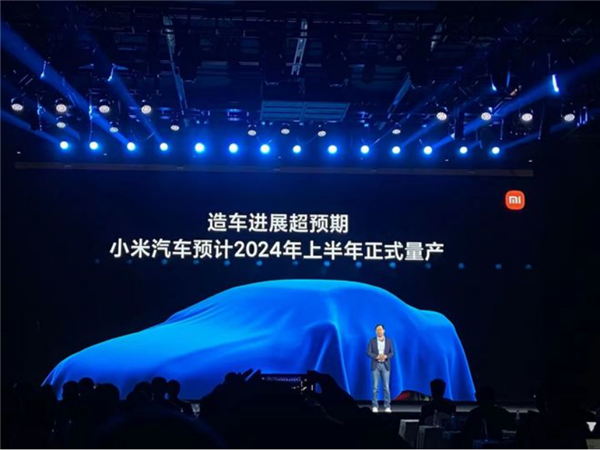
Vietnam’s electric car maker VinFast Auto is planning to invest up to USD200M (nearly INR1,665 crore) to set up assembly units in India and Indonesia with production expected to commence by 2026. VinFast is anticipating a USD1.2B cash infusion from its founder and others as the Nasdaq-listed electric vehicle producer hopes to reach 50 markets by the end of 2024. VinFast, a competitor of American electric carmaker Tesla, “is aiming to access the tremendous potential for increased EV adoption in India and Indonesia where EV penetration is currently only 1%”, the company said. (CN Beta, Asia Nikkei, Economic Times)
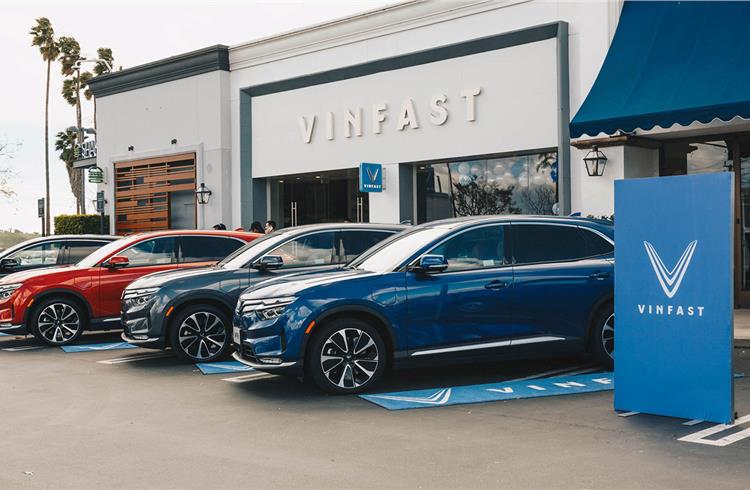

The Blockchain Game Alliance (BGA) is the key partner to accessing the largest network of Web3 gaming professionals. A global, non-profit, community-focused organization with over 500 trailblazing company members across the globe, BGA members range from game studios, infrastructure, tooling, marketplaces, chains, IP licensing and more, covering a broad spectrum across the Web3 gaming ecosystem. Guided by experts in the industry, BGA was founded in 2018 to bring builders together to collaborate and build the future of blockchain gaming, share knowledge and create industry standards. (VentureBeat, BGA)

PayPal has been hit with a class action lawsuit by consumers represented by law firm Hagens Berman alleging that the PayPal’s anti-steering rules stifle competition against lower-cost payment platforms such as Stripe and Shopify. Specifically, according to an investigation conducted by the firm’s consumer rights attorneys, PayPal has subjected consumers to excess charges when purchasing from online merchants that accept PayPal or Venmo. The suit states that PayPal’s merchant agreements, which all merchants must sign to accept payments via its platform, leads to consumers paying more to make purchases. (TechCrunch, Hagens Berman)


Vera, led by Liz O’Sullivan, aims to enhance AI safety and accountability. The startup closed a USD2.7M funding round, bringing total funding to USD3.3M. Vera offers a toolkit to establish and enforce “acceptable use policies” for generative AI. Its proprietary models identify and mitigate risks in AI model inputs. The platform places constraints on AI model responses, offering greater control to companies. (TechCrunch, AlleyWatch, Medium, TS2)

Linkedin, Microsoft-owned social platform for those networking for work or recruitment, is unveiling a string of new AI features spanning its job hunting, marketing and sales products. They include a big update to its Recruiter talent sourcing platform, with AI assistance built into it throughout; an AI-powered LinkedIn Learning coach; and a new AI-powered tool for marketing campaigns. (TechCrunch, Linkedin, Social Media Today)
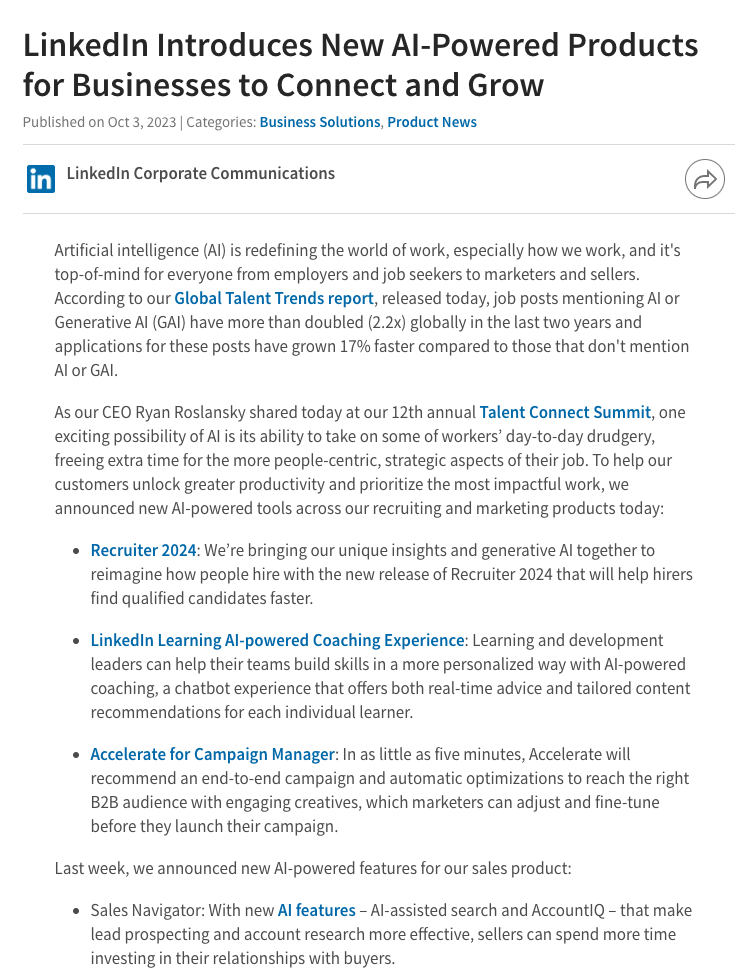
This wave of artificial intelligence was initiated by ChatGPT, and uses Large Language Model (LLM) and generative AI (Generative AI) applications as the entry point. Bloomberg Intelligence predicts that the global generative AI downstream software market will expand to USD279.9B in 2032, with a 10-year compound growth rate of 69% from 2022 to 2023. (Huatai Securities report)
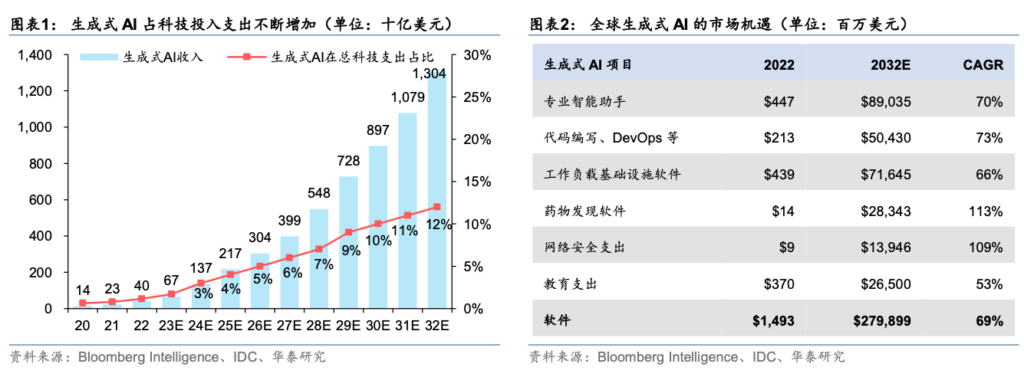

Back in 2019, Apple fell into negotiation problems with Qualcomm, so Apple turned to Samsung to materialize a deal. At the time, Samsung could not establish a partnership because it could not make enough 5G modems. Thus, the talks ended without reaching a satisfactory conclusion. At the earliest, Apple may unveil its first 5G modem in 2025, but it is highly unlikely that Samsung may find an opportunity like this again. (CN Beta, WCCFtech, Hankyung)
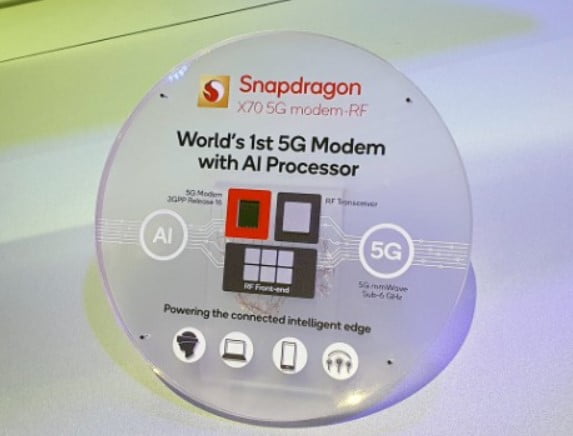
Qualcomm has unveiled Snapdragon next-gen VR chips, the XR2 Gen 2 and the AR1 Gen 1. The XR2 Gen 2 Platform is designed to provide a premium MR and VR experience in a single chip architecture. It offers 2.5 times better graphics processing unit (GPU) performance, resulting in richer visuals with enhanced clarity, textures, and colors. The platform supports resolutions of up to 3K per eye, ensuring high-fidelity visuals. It also features improved positional tracking with eight times better on-device AI, enabling more precise and natural interactions. AR1 Gen 1 Platform is built for usage on smart eyeglasses. It brings Dual ISPs, which help to improve picture (12MP) and video (6MP) quality. There is also an upgrade to the binocular display quality, which is important for reading notifications. The platform also features powerful on-device AI for image and audio quality enhancement, visual search, and real-time translation capabilities.(CN Beta, VentureBeat, Qualcomm, Android Headlines)
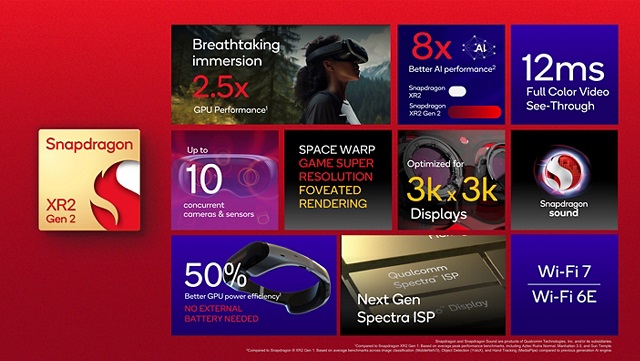
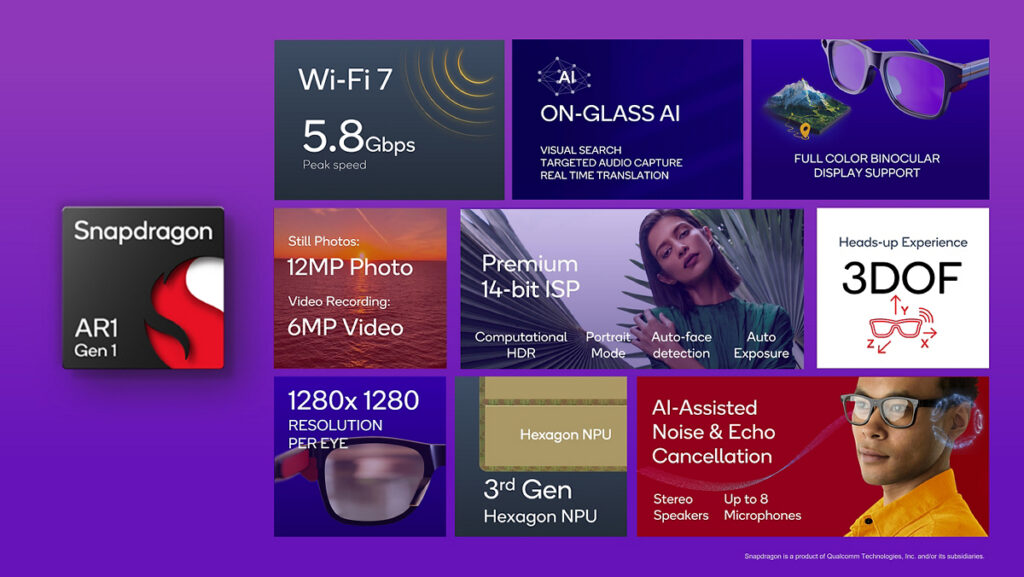
According to the number of citations of different chips in AI papers, Nvidia’s chips are the most popular in AI research papers. The usage rate of its products is 131 times that of ASIC. It is 90 times of Graphcore, Habana (acquired by Intel), Cerebras, SambaNova and Cambricon combined, 78 times that of Google TPU, and 23 times that of FPGA. In 2023, Nvidia is no longer content with upgrading single GPUs, launching the GH200 super chip that combines Grace CPU and Hopper GPU, achieving a total bandwidth of up to 900GB/s and accelerating large-scale AI and HPC application calculations. (Haitong Securities report)
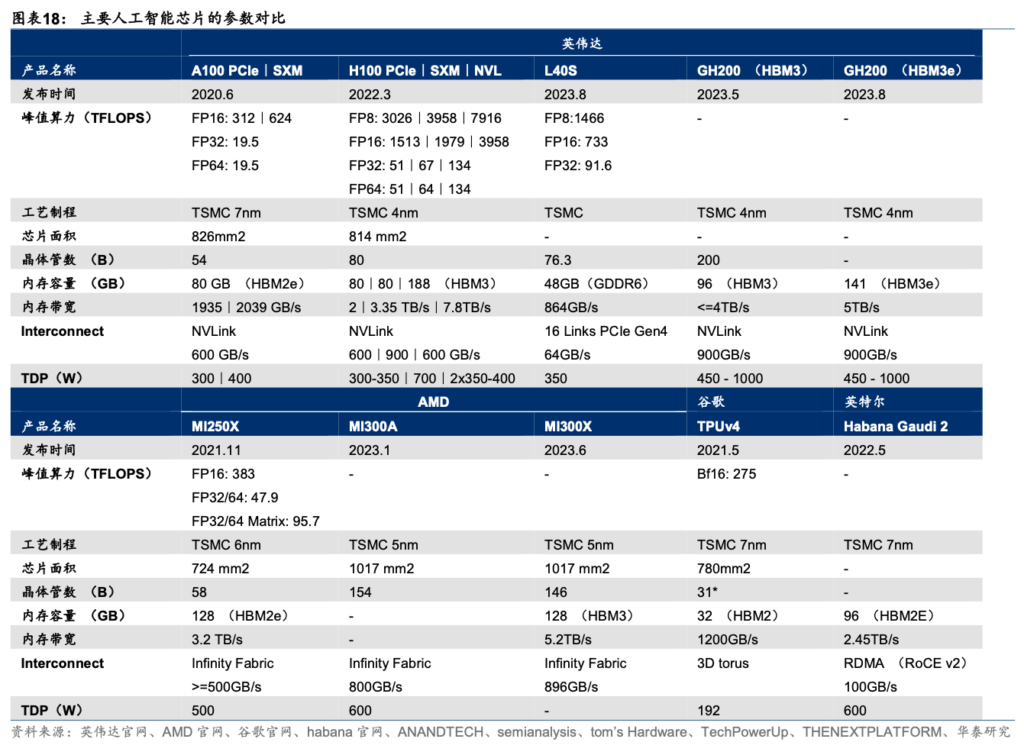
At present, cloud providers and Internet giants have different progress in developing self-developed AI chips: 1) Google has been in the field of artificial intelligence for many years, and its TPU is one of the few AI chips on the market that can compete with Nvidia GPUs; 2) Amazon has already developed its own AI chips on the training side and inference side has a two-pronged approach, and Trainium and Inferentia have been launched on the AWS cloud for customers to use; 3) Microsoft and Meta still rely heavily on chips from Nvidia, AMD and Intel, but they are not far behind, and Microsoft is self-developing its Athena, while Meta’s MTIAv1 is later, and the company expects it to be released in 2025. (Haitong Securities report)
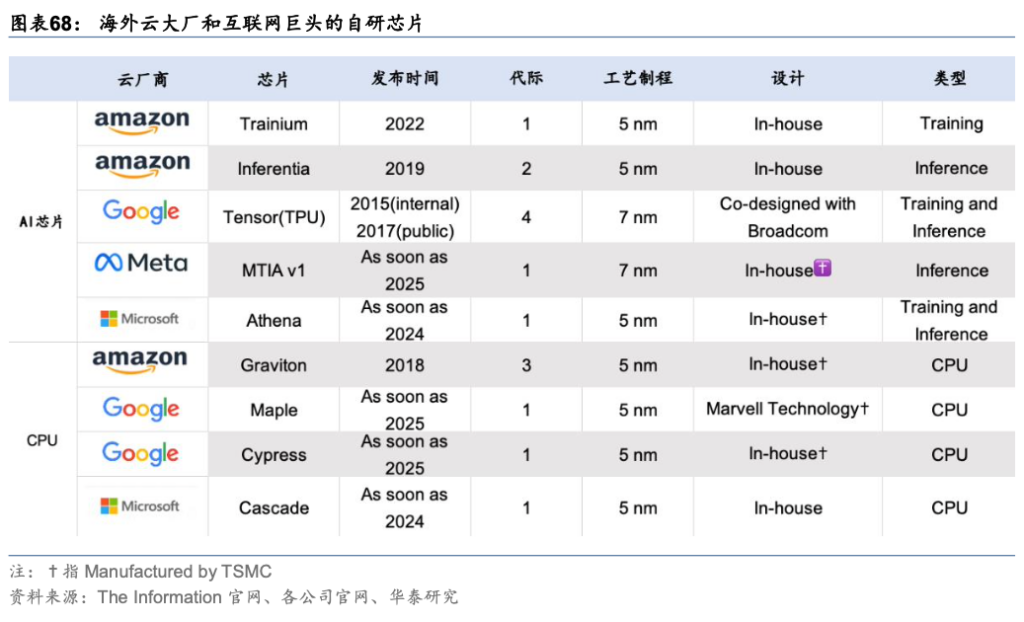

Samsung is reportedly developing a slim foldable laptop incorporating a unique waterdrop hinge mechanism, with a launch expected in 2H24. This waterdrop design as Samsung calls Flex Hinge was previously introduced in Samsung’s recent foldable smartphones, Z Flip5 and Z Fold5. The waterdrop hinge allows the axis to move when folded, resulting in a tighter fit between screens and reduced creases at the fold. The new hinge might make the laptop slimmer, although durability concerns could potentially lead to a thicker final product. Despite the intriguing design, industry insiders question the necessity of a waterdrop hinge for foldable laptops. (Gizmo China, The Elec, CNMO)
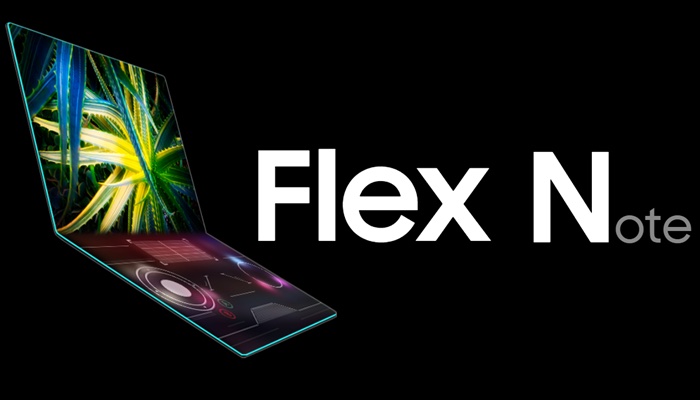

DDR5 specification DRAM is expected to catch up with AI server and laptop business opportunities in 2024, and begin to gradually increase demand. In 2024, related market demand is expected to increase quarter by quarter. It is expected that the shipment performance of Anpec Electronics’ power management IC equipped with DDR5 in 2024 is expected to prosper along with it. Although major DRAM manufacturers such as Samsung and SK Hynix are still reducing production capacity, they are mainly targeting DDR4 specification DRAM. It is also rumored that Samsung will fully increase DDR5 production capacity in 4Q23 to cope with the shortage of DDR5 DRAM due to strong order demand in 2024. In fact, major PC platform manufacturers such as Intel and Advanced Micro Devices (AMD) are already expected to launch new platforms in 2024 that will begin to support DDR5 specification DRAM, which means that the demand for DDR4 will gradually decline. In addition to the consumer market, in the server market, Intel’s 5th generation server platform Emerald Rapids, which will be launched at the end of 2023, fully supports DDR5. While the demand for AI servers will increase significantly in the future, DDR5 demand is expected to enter a period of rapid growth. (CN Beta, IT Home, IJiwei, WCCFtech, UDN)
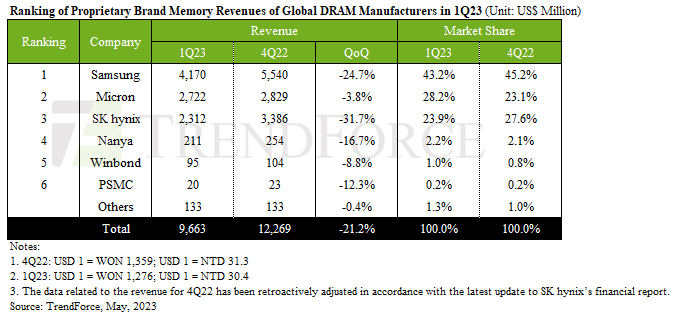

TechInsights predicts that the 5G smartphone market will resume growth in 2024. TechInsights predicts that Apple‘s market share is slowly declining, but it will maintain its No. 1 position in the world through strong iPhone sales in 2023 and 2024. Samsung will maintain its second position in the world’s 5G smartphones in 2023 and 2024, and Xiaomi will be in third place. The growth of the 5G smartphone market is slowing down but will continue to show positive growth in 2023 and 2024. In 2024, the global 5G smartphone penetration rate will reach 72%, while the 5G millimeter wave smartphone penetration rate will reach 7.3%. (CN Beta, TechInsights)
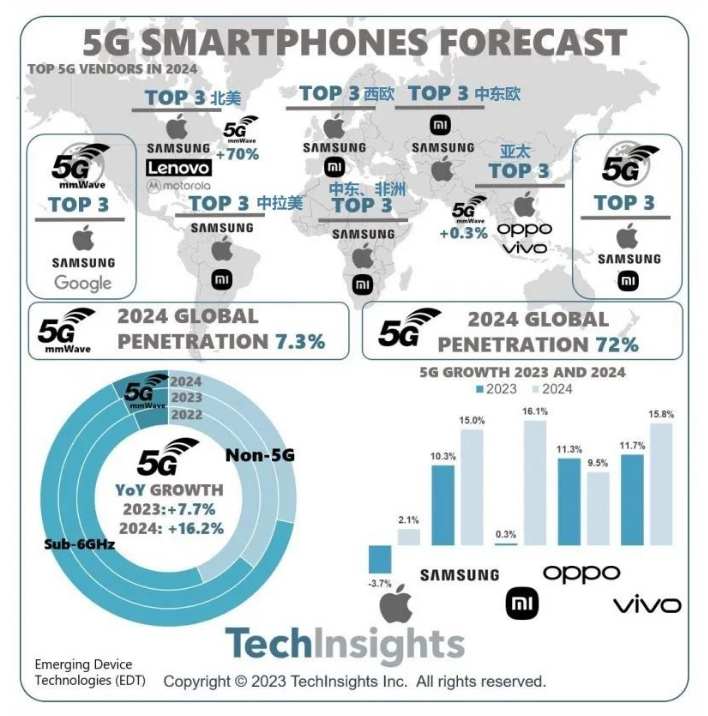
U.K.-based Lyca Mobile has confirmed intruders accessed customers’ personal information after breaking into its systems. Lyca Mobile, the London-headquartered mobile virtual network operator (MVNO) that piggybacks off network operator EE’s infrastructure, has said that it had been the target of a cyberattack which caused widespread disruption for millions of its customers, except those based in the United States, Australia, Ukraine and Tunisia. Lyca Mobile said that it first detected the incident on 30 Sept 2023 and took “immediate action to contain the incident”, such as isolating and shutting down compromised systems. Despite this, the company said that attackers have accessed “at least some of the personal information held in our system”. (TechCrunch, Lyca Mobile)
